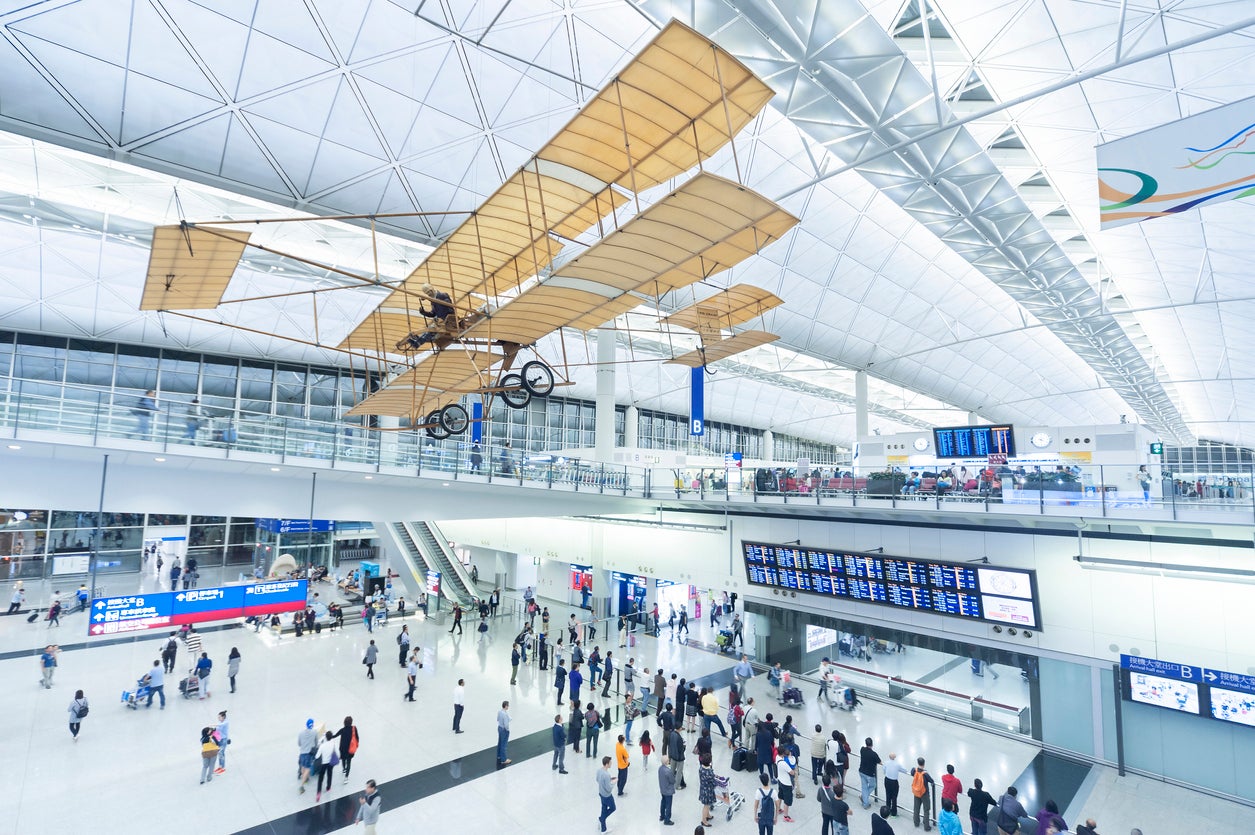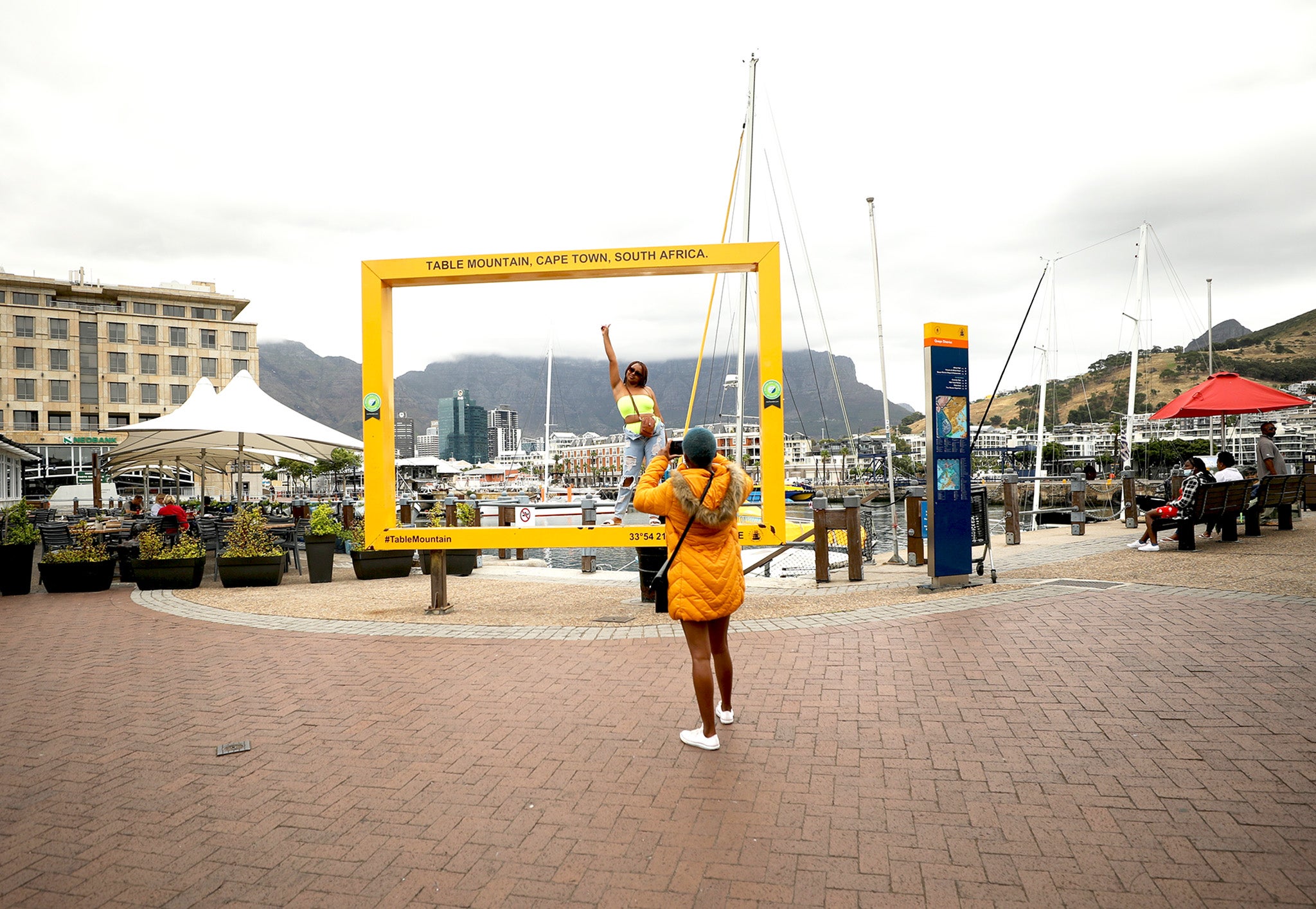Can UK tourists drive through France to reach Italy or Spain?
Simon Calder answers your questions on the France travel ban, skiing holidays and returning to Britain from China


Q Since France blocks UK tourists now, does that mean nobody can drive through France for Italy or Spain? If so, what are the alternatives?
Name supplied
A Sadly, you are correct. For a time after an ambiguous French statement about the travel ban was released on Thursday morning, it looked as though transit in a private car might be possible within 24 hours. Indeed, a couple of operators told me it would be. But by Friday morning, the French government had clarified that transit for less than 24 hours is permitted only for airline passengers going elsewhere without entering France.
The specific allowance: voyageur en transit de moins de 24 heures en zone internationale dans les aéroports, or a “passenger in transit for less than 24 hours in the international zone at airports”. Effectively, this means you can change planes between international flights at Paris Charles de Gaulle, but that’s it. (It is still unclear what awaits arrivals from the UK who are going to other European Union countries; travellers entering the Schengen area must go through French passport control. Air France may make special arrangements for such cases.)
Citizens or residents of EU countries whose main place of residence is in another European Union nation can drive through France, but will need to provide proof and meet French testing requirements.
For the British motorist, the first option is to drive from a non-French gateway. Ferry alternatives that do not serve France include: Stena Line from Harwich to Hook of Holland; P&O Ferries from Hull to Rotterdam; DFDS from Newcastle to Amsterdam; Brittany Ferries from Portsmouth to Bilbao or Santander.
If you decide to sail with any of these ferry lines from the UK to France across the Channel, it may be that they will allow you to switch to a non-French voyage on payment of the appropriate supplement. You must, of course, follow all the rules for the countries you pass through.

Q I am booked to travel to France on New Year’s Day for a skiing holiday, with flights on easyJet and pay-on-arrival accommodation through Booking.com. The hotel isn’t a problem. But what chance have I got of claiming my money back for the flights, travel insurance and testing?
Steve F
A The sudden prohibition on travel to France for British visitors, which takes effect at 11pm tonight UK time, has thrown many thousands of plans into disarray. But in your position, ridiculous as it might seem with only two weeks until the end of the year, it is too early to say if your trip will be axed. Airlines (and ski firms) make almost all their winter profits from bookings over Christmas and New Year (plus a bit of help from February half-term), and will do all they can to continue to run trips. Every company will be (a) dealing with thousands of cancellations that have been forced upon it with incredibly unkind timing, and (b) declining to say if the trip is going ahead at this stage – with the hope that the French ban is swiftly lifted in recognition of the unstoppable spread of the omicron variant of Covid.
Annoying though the situation is, you should be practising “masterful inactivity” – recognising that at this stage there is nothing you can usefully do. France’s timing wipes out the Christmas period and probably journeys for people heading out before New Year’s Eve, but if there is no epidemiological justification for continuing the ban into January it may be removed as swiftly as it was imposed.
As of last night, easyJet is still selling its full range of 10 Gatwick-Geneva flights on 1 January (sadly, for fares starting at just £23). At present you have no right to cancel for a cash refund, but if – as I suspect – they are slowly culled, and your flight is one of the fallers, you will be able to get your money back rather than simply accepting a voucher.
Testing refunds are tricky to secure, and I continue to urge people to book tests as late as they possibly can. And travel insurance is unlikely to be of much help in this respect. As for getting the premium back – I am afraid you are regarded as already having benefited from your travel insurance, in terms of the cancellation cover it offers. But I am hopeful your trip can go ahead.

Q I am in China, where it all began. I am booked to return to the UK, via Hong Kong, on 28 December. I am double-vaccinated with the local version, Sinovac. Two days or 10 days in isolation?
Chris
A As things stand as of yesterday evening, my answer is “neither of the above”. For the purposes of demonstrating full protection for the purposes of entering the UK, you must provide evidence of jabs using an approved vaccine. For the past month, Sinovac has been recognised by the UK for this purpose.
So you qualify for the standard rules for returning home. First, a pre-departure test on the day you begin your journey to the UK, or on one of the two previous days. Assuming you are not planning to hang around in Hong Kong, you can get this done in China. At Hong Kong airport, you can expect to be temperature-checked – with additional screening measures if you are judged to be a potential risk.
It will not be the most relaxed transit experience you have ever had. The Foreign Office (FCDO) warns: “There is a risk when transiting that you will be placed into isolation in hospital in Hong Kong or 21 days government quarantine. If you successfully pass health screening you need to sit in designated areas at boarding gates and use designated queues in dining facilities and shops, in line with Hong Kong International Airport anti-virus measures.”
Assuming you pass this hurdle, your next obligations are in the UK: to take a post-arrival PCR test and self-isolate until you get a negative result. The test can be taken on the day of arrival or on one of the two following days. Taking it immediately on arrival is optimal, I believe – to maximise the potential public health benefit and minimise the time for which you need to self-isolate.
Testing at Heathrow is getting faster, and in your position I would be booking at Halo at Terminal 5. It is open 8am-8pm and promises results by 8am the following day, but I hear anecdotally that it is usually quicker. The price of £59 is higher than for postal tests, but it will be much faster (especially if the festive season slows the post).
Finally, the UK rules will certainly get no easier before January, and it is always possible they may get tougher due to the spread of omicron.
The chief medical officer, Chris Whitty, said yesterday evening: “All the things we know are bad.”
As always in travel, all I can urge is that you hope for the best but be prepared for disruption.

Q We took the plunge and flew to South Africa last week with our standard travel insurance. We accepted it being void. As South Africa has now been taken off the red list, does the standard travel insurance come back into effect? Or do we lose cover because we travelled here whilst it was a red country?
Mark J
A First, I commend your foresight in travelling to South Africa on the now-correct assumption that, once again, it would be removed from the red list after a couple of weeks. I reckon you will be safe for a few weeks (though I cannot promise that the identification of a concerning pi, rho, sigma or tau variant will not precipitate the same knee-jerk reaction from government).
Next, the government is fond of warning against travel to nations on the red list, even though the danger to the individual, fully vaccinated traveller of Covid infection is tiny relative to the many other risks in South Africa – from terrible road safety standards to violent crime.
As you say, the effect of a FCDO warning against travel is to render standard travel insurance void. You can see the insurers’ point of view: if the government is so worried about a turn of events in a particular country that it urges British travellers to avoid it, then the risk assessment changes significantly. An increasing number of insurers offer policies or extensions that cover travel against Foreign Office advice.
In the unfortunate and unlikely event that you make a claim, I dare say a particularly stubborn travel insurer could try to argue that you should not have been there. But I really cannot see the Financial Ombudsman Service – which regulates travel insurance, and arbitrates in disputes – upholding such a position for an incident that happened after South Africa was removed.
Far better, of course, to avoid any need to make a claim. The single most effective way to stay safe in South Africa is to make any long-distance journey by rail or air rather than road.
Email your questions to s@hols.tv or tweet @Simon Calder






Join our commenting forum
Join thought-provoking conversations, follow other Independent readers and see their replies
Comments